To the uninformed traveler, the city of Agra in India might seem to be the Taj Mahal and little else. After all, the railway between Agra and Delhi was created simply to satisfy the tourists to India that visited the capital of New Delhi and wanted an easy way to make the 140-mile trek to Agra to see the Taj Mahal. With how much the Taj Mahal dominates the city as one of the seven wonders of the world, you might think that it’s a challenge to find five things to see and do in Agra, even with the Taj Mahal included.
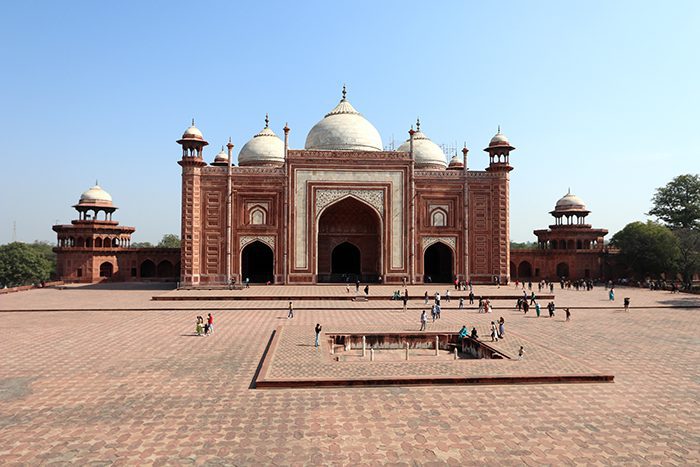
That’s not the case. You’re heading to Agra to see the Taj Mahal, but this is a city of 1.5 million people and several examples of beautiful architecture beyond India’s most famous building. There are actually plenty of great things to visit, see and do in Agra, and while the Taj Mahal is worth the visit on its own, you’d be doing yourself a disservice to miss any of the experiences on this list. Without further a do, here is our 5 things to see and do in Agra, India!

There’s a reason that more than seven million people come to the Taj Mahal every year, with nearly a million of them being foreign visitors. The Taj Mahal is a truly special sight to see, and to keep it that way, visitors are prohibited from wearing shoes inside the Taj Mahal.
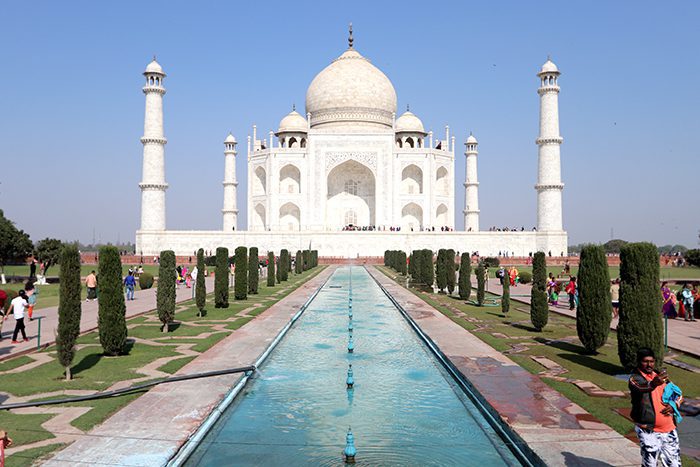
Instead, what you’ll have to do is slip a pair of shoe covers on over your street shoes, which will keep your shoes from making a mark on the floor. You also won’t be able to use either your video camera or your cell phone inside, so make sure that you have a good still camera in order to take the photos in areas where they’re permitted.

One thing to know is that while the famous dome is the image most people have of the Taj Mahal, it’s not the only part of it. The Taj Mahal is a network of buildings and gardens, and together, the area makes up one of the seven wonders of the modern world. This was my fourth wonder that I’ve seen in person, and in my opinion, it’s the most beautiful of the seven.

The Taj Mahal took 16 years to complete and was originally finished in 1648 as a mausoleum for Mumatz Mahal, the wife of the Muslim emperor. Muslim tradition forbids the decoration of graves, but there’s no such restriction on mausoleums, and the marble structure is among the most exquisite in the world. The Muslim emperor spent 32 million rupees on construction (the equivalent of 827 million dollars today), and it shows in the beautiful and unforgettable carvings and decorations found inside.
Don’t forget to check out JetSet LifeStyle Blog!

When planning to visit the Taj Mahal, there are two things to keep in mind before you get to Agra. The first is that the Taj Mahal is not open to tourists on Fridays. On Fridays, the Taj Mahal is off-limits to anyone besides Muslims going to the building to worship and pray. The second is that the fee for foreigners costs 1,000 rupees, the rough equivalent of 15 U.S. dollars.
Check out 5 Things to Do in Varanasi, India
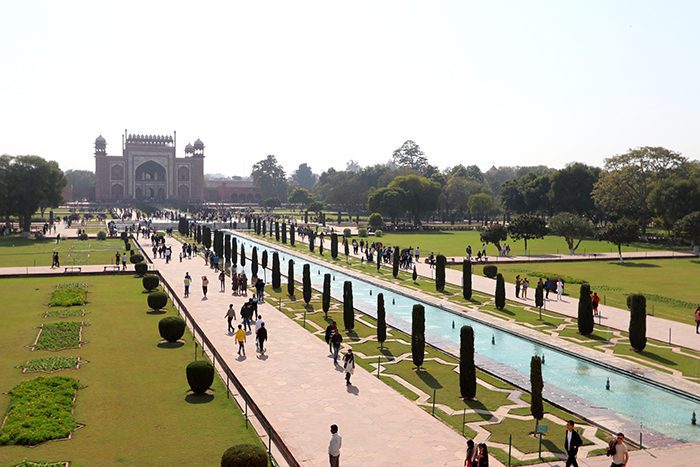
Conversely, Indian citizens pay just 40 rupees. That might seem unfair, but there is a trade-off: no more than 40,000 Indian citizens are permitted to visit the Taj Mahal on any given day in order to protect the structural integrity of the building. That cap only applies to Indian citizens, so there’s no worry that you’ll be turned away or forced to pay a higher fee based on the crowds.
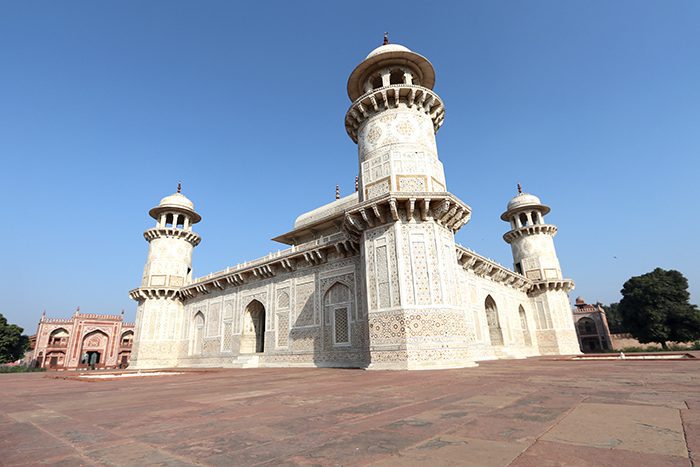
Often referred to as the “baby Taj Mahal”, the Tomb of I’timād-ud-Daulah actually predates the Taj Mahal by 20 years and is seen as the forerunner to the Taj Mahal today. The mausoleum represents a shift in Mughal architecture, as the first phase of this tomb was made with red sandstone, while the second phase shifted to white marble.
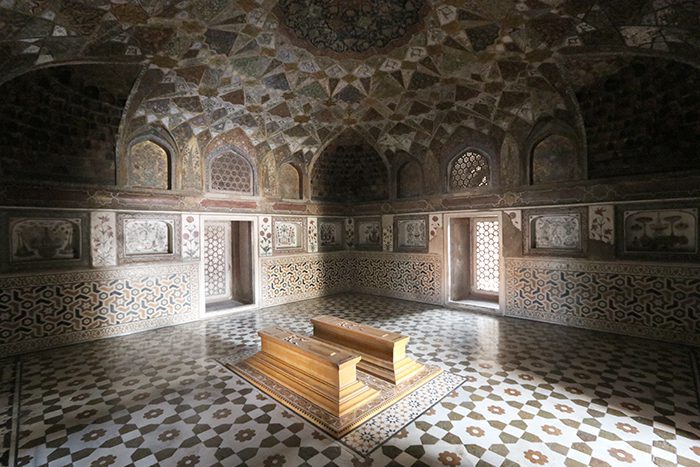
Like the Taj Mahal, the stone used contains other precious stones that maximize its beauty, including topaz, onyx and jasper. Like the Taj Mahal, the tomb was also used as a mausoleum to remember a ruler’s loved one. This tomb, however, honors Mirza Ghiyas Beg, the father of the emperor’s wife and the grandfather of Mumatz Mahal.

Seeing the baby Taj along with the Taj Mahal is a great way to compare the two structures and see how the change in architectural styles helped the latter become what it is!

Going further into the past reveals the Agra Fort, constructed in 1573 and showing full use of the red sandstone that dominated that era of Mughal architecture. It’s more of a walled city than an actual fort and was used as the capital of the Mughal Dynasty until it was relocated to Delhi.
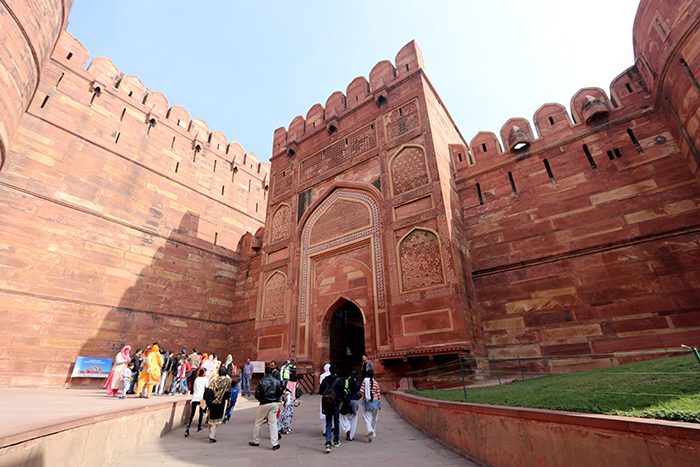
The city had three different gates in order to allow for its defenses to remain strong against invaders, although in practice, this wasn’t all that effective, as the fort was captured multiple times before finally falling to the British in the 19th century.
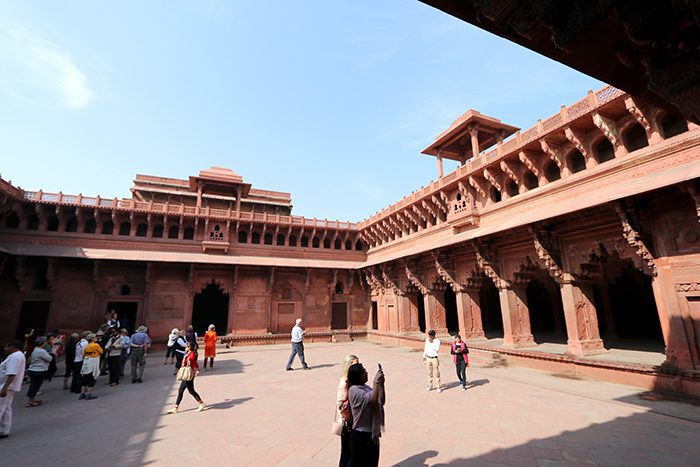
Still, the beauty of the walls and the palace is something that must be seen to be believed; the fort is a remarkable sight and certainly one of five things to see in Agra on your visit. It’s one of the most breathtaking things I’ve seen in Asia and worth the trip.

There are three entrances to the Taj Mahal: the east, west and south. What about the north? The north is occupied by Mehtab Bagh, which was to be the site of a second Taj Mahal had the emperor not been imprisoned by his son.
Check out Top 10 Things to See and Do in Delhi, India
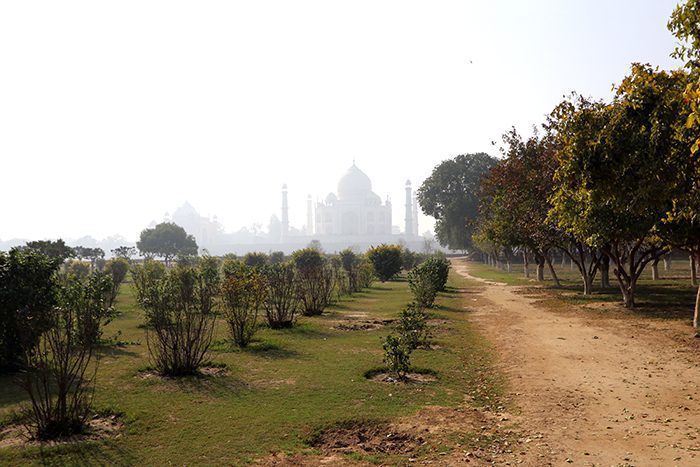
Today, only the foundation of the unbuilt second Taj Mahal remains, but Mehtab Bagh has gained its fame for its views of the Taj Mahal and its status as one of the most beautiful gardens in the area.
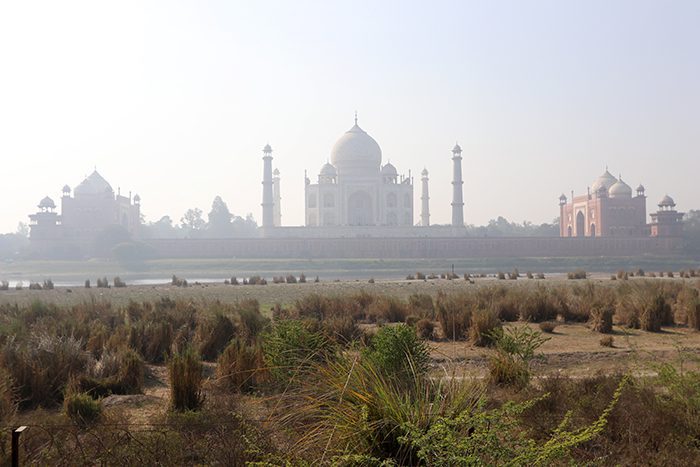
If you want to see the Taj Mahal at sunrise or sunset, I highly recommend coming to Mehtab Bagh; you’ll see some of the most incredible views of the Taj Mahal that few visitors ever see for themselves. It’s a great idea to take two days to visit and compare the views from each area!

If you’ve never heard of Petha, you’re not alone. Petha is an Indian dessert that’s unique to Agra, and it’s a translucent candy that’s made from the wax gourd, a native plant to Asia. In my opinion, the best place to try this dessert is the MasterChef Restaurant, one of Agra’s best places to eat. Not only will you get to try Petha the way it’s supposed to be made, but you’ll get to enjoy some fantastic vegetarian curries as well.
Check out our Top 10 Things to Do in Mumbai, India
When you try Petha, don’t be surprised to find that it’s rock-hard on the exterior and very sweet. It’s a must-try on your visit because it’s a delicious dessert, but the flavor can be off-putting at first if you’re not expecting your dessert to hit your taste buds with a load of sweetness at once.

While the Taj Mahal might be the main reason to make the trek to Agra, the former capital of the Mughai Dynasty has some true gems to offer beyond the famous mausoleum. Plan your visit around the Taj, but make sure you leave plenty of time for the rest of these five things to see and do in Agra. You’ll come home with a complete cultural experience after seeing some of the best sights southern Asia has to offer!
I hope you enjoyed these 5 things to see and do in Agra, India! Have you been to Agra before?
Counter
101 Countries • 1432 Cities